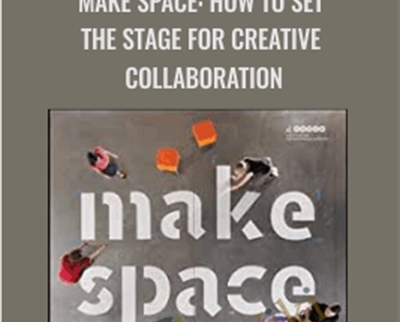$27.00 Original price was: $27.00.$21.00Current price is: $21.00.
Parks & Playgrounds
Endless interactions of all sorts occur in these spaces that provide insight into natural postures and the nuances of group interactions.
Airports & Parking Garages
Guiding travelers is a door-to-door experiment in designing way-finding. Parking garages in particular feature innovative uses of signage, color coding, and memory cues.
 Purchase this course you will earn 21 Points worth of $2.10
Purchase this course you will earn 21 Points worth of $2.10Opiniones editoriales
Amazon.com Review
From the Author: Hide & Seek Inspiration:
Visitors to the d.school frequently ask us where we find inspiration for the spaces we design. Here are a few places we look:
— Retail Experiences
Restaurants, Hotels, & Stores
Restaurants & boutique hotel lobbies are almost unparalleled in the moods they create. Retail stores are full of display implementations that can be co-opted for display of creative work.
Specialty Hardware Retailers
Marine hardware outlets, antique hardware stores, and industrial kitchen suppliers stock all manner of novel gadgets to inspire new possibilities.
— Public Gathering Places
Parks & Playgrounds
Endless interactions of all sorts occur in these spaces that provide insight into natural postures and the nuances of group interactions.
Airports & Parking Garages
Guiding travelers is a door-to-door experiment in designing way-finding. Parking garages in particular feature innovative uses of signage, color coding, and memory cues.
— Places Where Things Are Made
Prep Kitchen & Food Trucks
Food prep is creative work that occurs under great time pressure. Cooks consitently invent ways to produce during the constraints of a mad dinner rush.
Sound Stages & Theaters
Sound stages are designed to support the realization of imagination. Everything about them is tuned to support the construction of novel designs.
— Learning Environments
Museums & Galleries
Art is inspirational but so are the galleries themselves. Gallery spaces are constantly reconfigured to adapt for the needs of a show.
Pre-schools & Kindergartens
Learning environments for young kids are one of the few places where physicality is embraced — kids love to move around. These spaces are also full of materials to engage in playful building activities
— Service Industries
Hospitals
Emergency rooms in particular are filled with clever solutions to coordinate action among staff and service the often complex emotional needs of patients.
Repair Shops
Bike mechanics, oil-change garages, tailors, and shoe repair shops all have unique tools & configurations for optimizing space, time, and money.
About the Author
Scott Witthoft's professional work as an engineer and a designer has focused on understanding and manipulating interactions among systems. This has covered a spectrum including forensic structural engineering, furniture design, and curriculum design. Scott is an amateur musician with a love of stringed instruments. As a Lecturer at Stanford University, he teaches classes in human-centered design and storytelling and visual communication. Scott has degrees in civil engineering from Washington University in St. Louis (BS, '99) and The University of Texas at Austin (MS, '00), and product design from Stanford University (MSE '08).
Scott Doorley's work focuses on how physical context and digital media can benefit human experience.
His installations with the Dacha Art Collective have been exhibited in the San Jose Museum of Art and the Gray Area Foundation for the Arts San Francisco. Currently he is the Creative Director at the Stanford d.school, where he teaches classes in subjects at the intersection of design and media arts: storytelling and visual communication, improv, and digital media.
Scott has degrees in film from the University of California, Los Angeles (BA '96) and learning, design, and technology from Stanford University (MA '06).
Get Make Space: How to Set the Stage for Creative Collaboration – Scott Doorley & Scott Witthoft , Only Price $25
Tag: Make Space: How to Set the Stage for Creative Collaboration – Scott Doorley & Scott Witthoft Review. Make Space: How to Set the Stage for Creative Collaboration – Scott Doorley & Scott Witthoft download. Make Space: How to Set the Stage for Creative Collaboration – Scott Doorley & Scott Witthoft discount.
Only logged in customers who have purchased this product may leave a review.
Related products
= 84 Points
= 72 Points
Uncategorized
= 85 Points
Uncategorized
= 30 Points
Uncategorized
= 85 Points
Uncategorized
= 85 Points
Uncategorized
= 85 Points
= 65 Points





Reviews
There are no reviews yet.